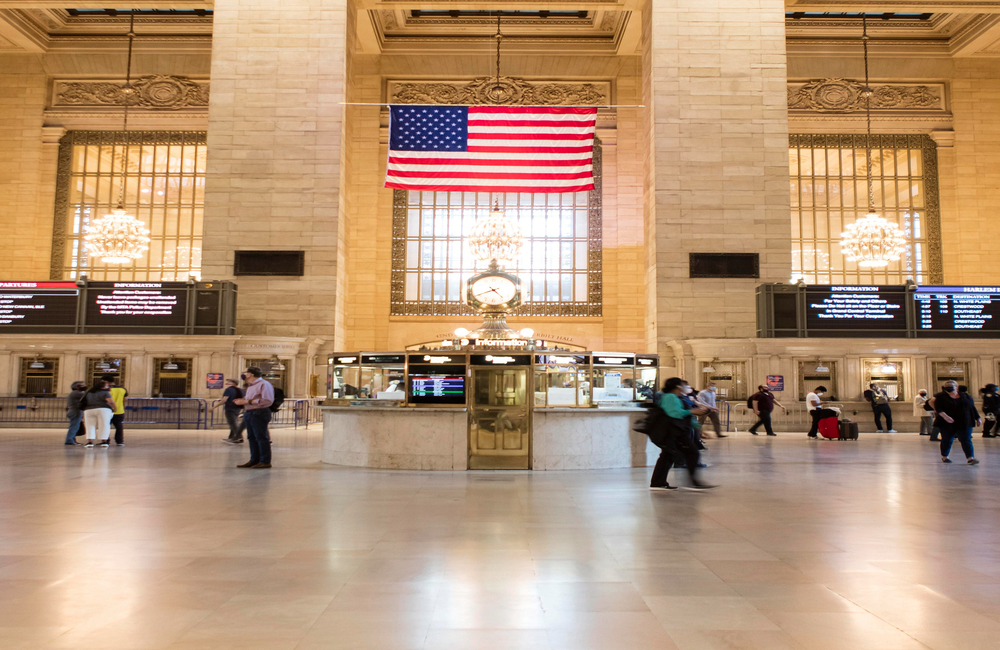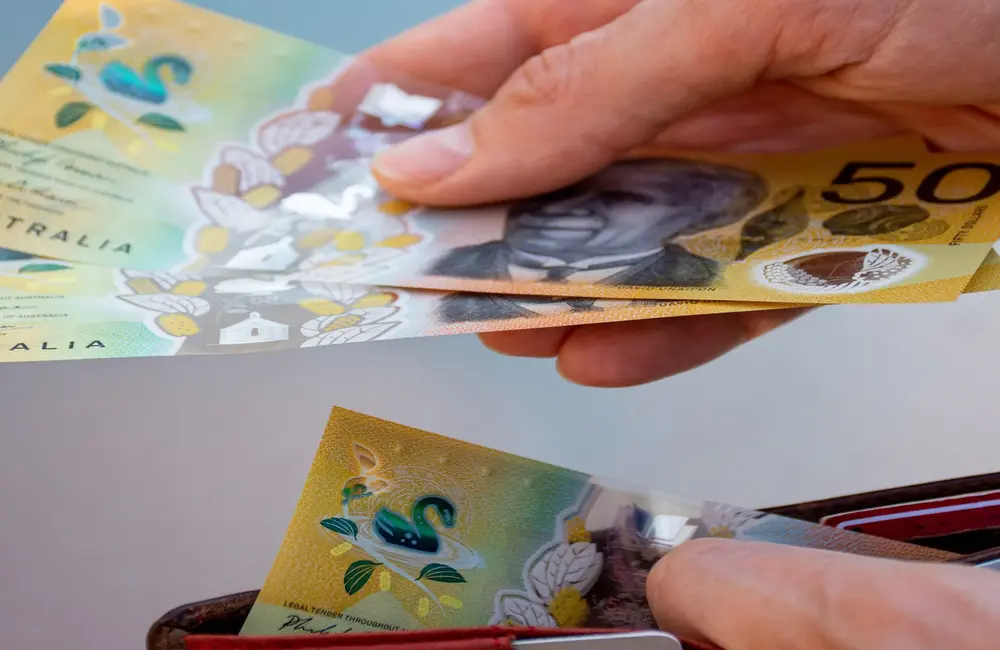Investors fretted after US and European central banks lifted interest rates further and signalled more rises next year.
ASX futures were down 0.4 per cent at the open.
Stocks dropped again on Friday, pushing traders to grapple with what a future of higher-for-longer interest rates might mean and what kind of shape the economy would be in.
The S&P 500 fell 1.3% on Friday afternoon after a 2.5% decline on Thursday. All 11 sectors in the index declined.
The Dow Jones Industrial Average dropped 1.2 percent, or roughly 400 points, and the technology-heavy Nasdaq Composite slipped 1.1 percent. All three of the major indexes were on track to drop by more than 2 percent this week, with growth-sensitive technology and smaller company stocks taking an especially hard hit.
The investors who had grown optimistic based on benign inflation now find themselves fretting about a slowing economy. Data on manufacturing and a new services measure on Friday only helped underscore that problem.
Private sector bottom lines are being hurt by poor consumer demand. While inflation is easing, rising input and borrowing costs continue to put pressure on businesses and households, according to S&P Global Market Intelligence. Not counting the Covid-19 downturn, this is the fastest fall in business activity since 2009, the data provider said.
The market soared earlier in the week as sluggish inflation data helped to fan hopes that the Federal Reserve might step back from its aggressive pace of interest rate increases. Those gains reversed after the Fed on Wednesday released revamped rate forecasts and slowing retail sales data emerged on Thursday, stoking fears of a recession.
In the commodities markets, Brent crude plunged 2.88 percent to $US 78.87 a barrel, and gold was up 0.83% to US$1,791.58.
The Australian 2 Year Government Bond yield dropped back to 3.12% and the 10 Year yield held at 3.45% in local bond markets. US 2 Year notes: the yield decreased to 4.17% US 10 Year notes: the yield decreased to 3.48%
The Aussie was at 66.89 US cents, down on its prior close of 66.98. The Wall Street Journal Dollar Index, which measures the U.S. currency against 16 others, slipped to 97.83.
Asia
Chinese shares ended sharply lower on Friday, breaking a six-week rally that had been fueled by the country’s reopening. Shares of hardware and software companies dragged on the market, including a 2.4% decline for semiconductor producer Naura Technology Group and Beijing Kingsoft Office Software’s 2.1% loss. Property shares led the gains after China’s vice premier said Beijing will look into implementing more measures to bolster the battered real estate industry. Gree Real Estate rose by its daily 10 percent limit and China Vanke was up 1.4%. The Shanghai Composite Index finished the day flat at 3,167.86, and lost 1.2 percent for the week. The Shenzhen Composite Index ended 0.7% lower, and the ChiNext Price Index lost 1.1%.
Hong Kong’s Hang Seng Index outpaced its regional peers, closing up 0.4% at 19450.67, lifted by Chinese property developers. The upturn in the real estate sector coincided with enhanced expectations of policy support. Country Garden Holdings gained 5.9% and China Resources Land added 3.9%. Wuxi Biologics gained 5.4 percent after its unit was taken off the US Commerce Department’s unverified list. Some US-listed Chinese firms rallied after the Public Company Accounting Oversight Board (PCAOB) reached an agreement that would grant it full access to inspect audit firms based in the mainland. The Alibaba Group rose 0.6%, and JD.com was up 1.5%. For laggards, Xinyi Solar dropped 3.0 percent while Techtronic Industries lost 2.3 percent. For the week, the Hang Seng index shed 2.3 percent.
Stocks in Japan finished down, led by losses in both electronics and tech stocks, with worries growing about the global economic prognosis on the backdrop of policy tightening by major central banks. Shares of Tokyo Electron Ltd. fell 4.5% and SoftBank Group was down 3.8%. Elsewhere, Toshiba Corp. added 2.1% after a group led by Japan Industrial Partners landed funding to take over the industrial company, according to reports. The Nikkei Stock Average dropped 1.9% to 27527.12 RuntimeMethod Source.
Europe
European stocks slid on Friday in the wake of this week’s interest rate hikes by the Federal Reserve, the European Central Bank, the Bank of England and other central banks. The pan-European Stoxx Europe 600 fell 1.2 percent, the British FTSE 100 was down 1.3 percent, the German DAX dropped 0.7 percent and the French CAC 40 slid 1.1 percent.
“Stock markets are entering the festive season in a somber mood, after central banks confirmed this week that they are intent on tightening their belts,” Oanda analyst Craig Erlam said. “When you see investors so eager to discount the end of the tightening cycle, then you can understand the stances being taken by central banks.”
North America
Stocks dropped on Friday yet again, as investors were again left to grapple with the possibilities of higher-for-longer interest rates and even a recession.
The S&P 500 was down 1.3% Friday afternoon, a day after falling 2.5%. All of the index’s 11 sectors fell.
The Dow Jones Industrial Average declined 1.2 percent, or roughly 400 points, and the technology-focused Nasdaq Composite dropped 1.1 percent. The three main indexes are all on track to decline more than 2 percent for this week, with technology stocks and other growth-sensitive areas being hit hardest.
Investors who had been feeling soothed by cooling inflation are now stressing over slowing economic growth. New service and factory data on Friday only stoked those concerns.
And private sector bottom lines are getting hit by slack consumer demand. While inflation is moderating, increased input and borrowing costs are still a drag on both business and households, S&P Global Market Intelligence said. Not including the Covid-19 downturn, this is the fastest downturn of business activity since 2009, the data provider said.
The market rallied earlier in the week on hopes that the Federal Reserve might pull back on aggressive interest rate increases after data showed inflation was slowing. The Fed rate shift on Wednesday, along with softening retail sales data on Thursday, reversed those gains and stoked fears of recession.
The central bank said on Wednesday that it hoped to raise rates through the spring, and to an even higher level than it had previously forecast. Forecasts from the Fed also indicated that the central bank would keep rates at their highest level until 2024, a source of concern for some investors who had anticipated that officials would start cutting rates next year.
“They’ve effectively set a high bar in terms of the absolute level and the rapidity with which inflation would have to decelerate to justify. a real turning point where they would actually be cutting rates,” said Hani Redha, portfolio manager at PineBridge Investments. "That's really bearish."
The European Central Bank said this week that it planned to continue lifting rates once again in half-percentage-point steps next year. The Bank of England was the only one of the world’s big central banks this week to express any hesitation about raising rates much further, after saying it believed the British economy was already in a recession.
Several investors are not that worried about the equity selloff, fretting instead to see a buying opportunity.
“I think, finally, there is an opportunity for investors to begin to put money to work,” said Nancy Tengler, chief executive and chief investment officer of Laffer Tengler Investments.
A lot of the return of money to the stock market has been in the form of individual investors who retreated from the market early in Fed tightening and have money to invest and the prospect of a recession has kept many investors on the sideline. Once the attention of investors moves to corporate earnings and margins which she says will hold up better than those on Wall Street believe the sentiment will start to brighten, Ms. Tengler added.

























